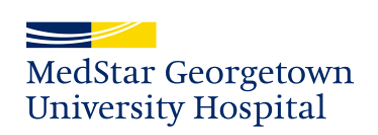Albumin for Intracerebral Hemorrhage Intervention
| Status: | Completed |
|---|---|
| Conditions: | Neurology |
| Therapuetic Areas: | Neurology |
| Healthy: | No |
| Age Range: | 18 - Any |
| Updated: | 5/27/2013 |
| Start Date: | September 2009 |
| End Date: | September 2013 |
| Contact: | Courtney Hsieh, BA |
| Email: | ch462@georgetown.edu |
| Phone: | 202-687-6491 |
The purpose of this study is to find out what effects, good and bad, the medication Albumin
has on subjects who have experienced a type of stroke known as an intracerebral hemorrhage
(ICH). An ICH is when spontaneous bleeding into the brain occurs due to fragile blood
vessels.
This research is being done because currently there is no effective treatment for ICH.
However, study investigators believe that Albumin, the medication being tested in this
study, is safe and may help improve patient recovery from ICH over time.
Subjects will be enrolled in the study for a total of 90 days. Following enrollment,
subjects will be randomized to receive 3 daily injections of either Albumin or Placebo
(liquid with no drug), and will receive 3 brain MRI scans (with and without contrast), as
described below.
All subjects will be monitored continuously through 96 hours after enrollment (5 days) in
the Georgetown ICU. Blood tests and clinical evaluations of neurological status, consisting
of questions about subjects' functional abilities and medical history, will occur in the
Georgetown ICU once every 24 hours through post-enrollment Day 5. Additionally, subjects
will receive daily chest x-rays, and daily EKGs (exams that monitor how your heart is doing
by placing electrodes, or small monitors, on your skin in specific locations).
Similar clinical evaluations will occur at Day 30 and Day 90. Should subjects be discharged
at these time points, day 30 assessments will occur over the phone, and day 90 assessments
will occur in-person at Georgetown University Medical Center.
We aim to determine the safety and explore the efficacy of human albumin as a
neuroprotective (or cytoprotective) agent for the treatment of acute primary supratentorial
ICH. Albumin therapy has been shown to be cytoprotective in animal studies of both ischemic
stroke and intracerebral hemorrhage, and in a phase II human study in ischemic stroke.
To date no acute intervention (beyond supportive medical care) has been identified to
improve outcomes in patients with primary ICH. Neuronal injury from a primary ICH is due not
only to the space occupying effects of the hemorrhage but also due to the development of
edema and toxicity from blood breakdown products in the subacute phase. Cytoprotective
strategies targeted to limit blood brain barrier (BBB) breakdown and edema formation hold
promise as treatment strategies to limit this injury.
A number of MR imaging outcome markers demonstrating a potential neuroprotective effect
include measures of hematoma volume, perihematomal edema, and blood brain barrier
disruption. The term "hyperintense acute injury marker" (HARM) has been proposed to describe
the radiologic finding of hyperintense signal within the cerebrospinal fluid spaces
visualized on post-contrast fluid attenuated inversion recovery (FLAIR) MRI in patients with
acute ischemic stroke. HARM has the potential to serve as a marker of blood brain barrier
disruption in patients with primary ICH. The current study will involve serial MR imaging in
ICH patients randomized to placebo vs. albumin to assess whether there are differences in
the frequency of HARM and perihematomal edema in the albumin treated patients.
Inclusion Criteria:
- Primary supratentorial ICH
- < 48 hours from symptom onset
- Age >18
- Signed informed consent obtained from the patient or patient's legally authorized
representative
Exclusion Criteria:
- ICH volume < 5 cc
- Glasgow Coma Scale < 6
- Surgical evacuation anticipated
- Pre-existing medical, neurological or psychiatric disease that would confound the
neurological, functional, or imaging evaluations
- Pregnancy or breastfeeding
- Hemodynamic instability (SBP < 100 mmHg, > 200 mmHg)
- Current participation in another experimental treatment protocol
- Renal impairment with GFR < 30 or Creatinine > 2.0
- History of or known allergy to albumin
- History of or known severe allergy to rubber latex
- Episode/exacerbation of congestive heart failure (CHF) from any cause in the last 6
months. (An episode of congestive heart failure is any heart failure that required a
change in medication, diet or hospitalization)
- Acute myocardial infarction in the last 6 months
- Elevated serum troponin level on admission > 0.1 mcg/L
- Known valvular heart disease with CHF in the last 6 months
- Known (or in the investigator's judgment) existence of severe aortic stenosis or
mitral stenosis
- Cardiac surgery involving thoracotomy (e.g., coronary artery bypass graft (CABG),
valve replacement surgery) in the last 6 months
- Suspicion of aortic dissection on admission
- Acute arrhythmia (including any tachy- or bradycardia) with hemodynamic instability
on admission (systolic blood pressure < 100 mmHg).
- Findings on physical examination of any of the following: (1) jugular venous
distention (JVP > 4 cm above the sternal angle); (2) 3rd heart sound; (3) resting
tachycardia (heart rate > 100/min) attributable to congestive heart failure; (4)
abnormal hepatojugular reflux; (5) lower extremity pitting edema attributable to
congestive heart failure or without apparent cause; (6) bilateral rales; and/or (7)
if a chest x-ray is performed, definite evidence of pulmonary edema, bilateral
pleural effusion, or pulmonary vascular redistribution.
- Current acute or chronic lung disease requiring supplemental chronic or intermittent
oxygen therapy.
- Prosthetic heart valves
- Contraindication to MRI (metal implant, etc.)
- Documented left ventricular ejection fraction < 35%
We found this trial at
1
site
3800 Reservoir Rd NW
Washington, District of Columbia 20007
Washington, District of Columbia 20007
(202) 444-2000

Georgetown University Hospital MedStar Georgetown University Hospital is a not-for-profit, acute-care teaching and research hospital...
Click here to add this to my saved trials